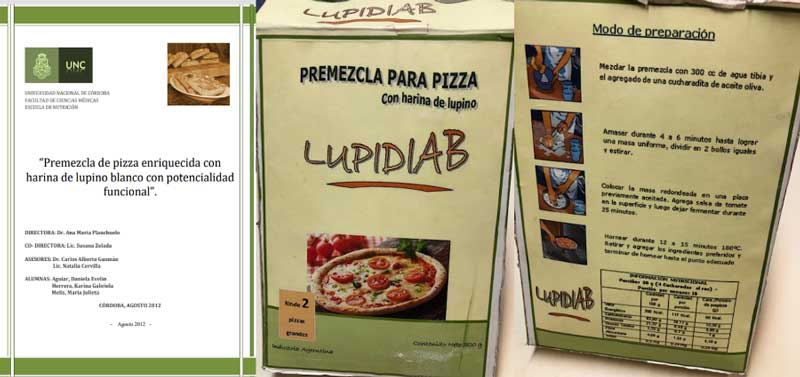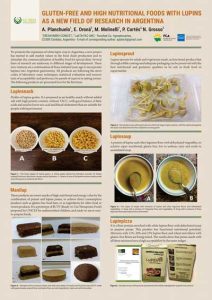
A. Planchuelo1, E. Oroná2, M. Molinelli1, P. Cortés2, N. Grosso2
1CREAN-IMBIV-CONICET; 2 LabTA-FAC-UNC - Facultad Cs. Agropecuarias,
CC509 Córdoba, Argentina
E-mail of corresponding author: aplanch@gmail.com
To promote the expansion of white lupin crop in Argentina, a new project has started to add market values in the food chain production and to stimulate the commercialization of healthy food for special diets. Several lines of research are underway in different stages of development. These new ventures are a continuation of those initiated years ago to incorporate lupines into Argentine gastronomy. All products are following the strict codes of laboratory essay techniques, statistical evaluation and sensory tests of acceptability and preference by panels of experts in tasting rooms. The following products are presented here for the first time.
Lupinsnack
Pickles of lupine grains. It is proposed as an healthy snack without added salt with high protein content, without TACC, with good balance of fatty acids and used to lower uric acid and blood cholesterol that are suitable for people with hypertension.

Figure 1.- The three stages of lupine grains. A: Dried seeds, before the hydration process. B: Grains soaked five hours that show a larger size by hydration. C: Grains of one of the pickle versions without salt and with spices to enhance the flavor.
Manilup
These products are sweet snacks of high nutritional and energy value by the combination of peanut and lupine pastes, to achieve direct consumption products such as gluten-free food bars, or as ingredients for other food or sweets products. It is a prototype of RUTF (Ready-to-Use Therapeutic Food) proposed by UNICEF for malnourished children, and ready-to-eat or easy-to-prepare foods.
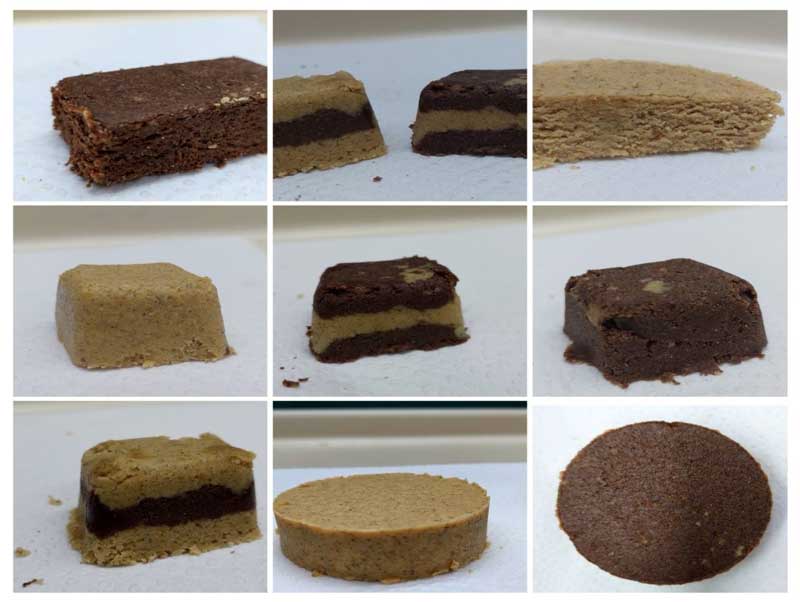
Figure 2.- Samples of two versions (basic and with chocolate) of snacks and food bar type RUTF, made with peanut paste, peanut flour and lupine flour as main ingredients;: basic and with chocolate.
Lupinsprout
Lupine sprouts for salads and vegetarian meals, as functional product that through edible coatings and adequate packaging can be preserved with the best nutritional and gustatory qualities to be sale as fresh food in supermarket.
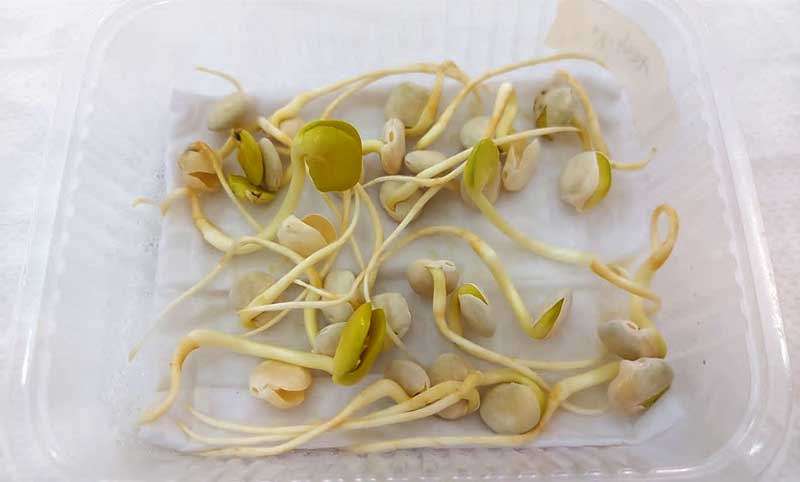
Figure 3.- Germination tray with lupine sprout in the final stage of germination, with the radicle elongated, the seed coat detached and the cotyledons turning green.
Lupinsoup
A premix of lupine and other legumes flour with dehydrated vegetables, to achieve super nutritional, gluten free, low in sodium, tasty and easily to assimilated soup.
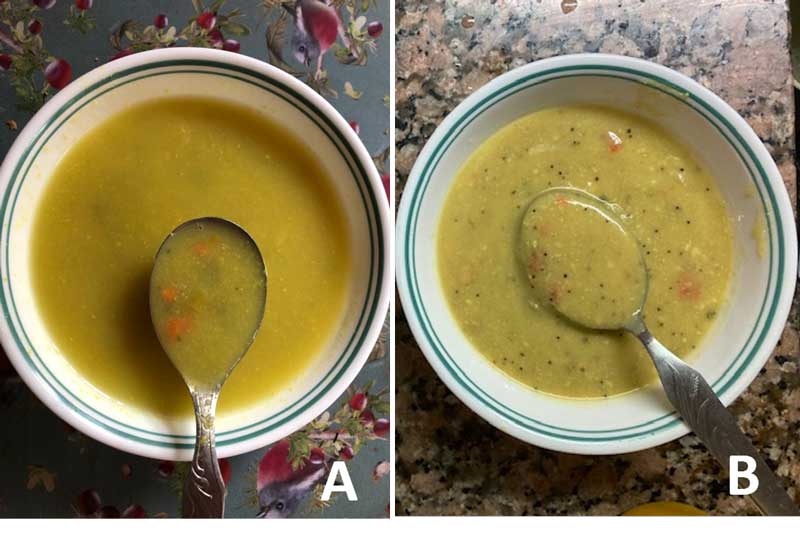
Figure 4.- Two types of soups with mixtures of lupine and other legumes flours and dehydrated vegetables. A: Soup with a mixture of 3 legumes flour and vegetables. B: Soup with a mixture of three legumes flours plus peanut flour and seeds.
Lupinpizza
It is a flour premix enriched with white lupine flour with dehydrated yeast to prepare pizzas. This product has functional nutritional potential. Mixtures with 15%, 20% and 25% lupine flour and wheat and others with gluten-free flours are being tested. The results show that pizzas made with all three mixtures have a high acceptability by the taster judges.

